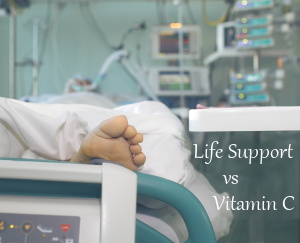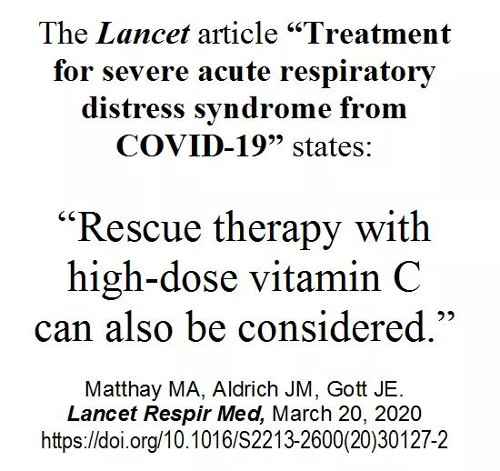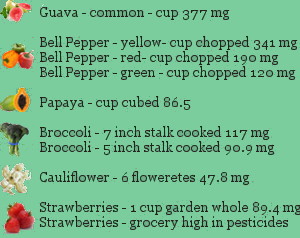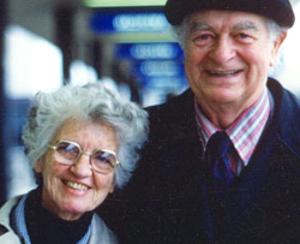
Vitamin C natural antibiotic – a Life Saver
The medical bias against high-dose vitamin C was shown in a 60 Minutes segment about a New Zealander with swine flu on life support. Luckily his family and vitamin C, a natural antibiotic, saved his life. Watch video. I might say the same about vitamin C natural antibiotic saving my life.
A timely take on Vitamin C

My vitamin C natural antibiotic experience
When I had tetanus and little money, causing Doctors to refuse to see me, I couldn’t get a prescription for Metronidazol, the antibiotic used to kill Clostridium tetani, the tetanus causing bacteria.
By chance I found a web site focusing on vaccination dangers. I wrote the webmaster saying that having a tetanus shot would have been better than getting the disease. Tetanus, after all, kills about half the people who get it.
The webmaster pointed me to a study in which vitamin C was given to chickens. The chickens were then poisoned with strychnine, which is similar to tetanus. None receiving vitamin C died nor did they have as severe symptoms as those not receiving vitamin C. In another study people in Bangladesh with tetanus were given vitamin C and none had as severe symptoms, and none died.
I immediately began taking several 500 mg. vitamin C tablets with a lot of water and a couple crackers three or four times a day. I didn’t know how much I should take and hoped the amount I was taking was about right. What happened next made all the difference: I got a terrible toothache from an impacted dental implant. My face swelled. My vision blurred as the swelling pressured my optic nerve. The pain was extreme.
When pain and swelling made it impossible to eat, I began taking fifteen 500 mg. vitamin C three times a day with lots of liquid. The next day there was improvement. I no longer felt like screaming from the pain. By the third day the swelling was down and the pain was mostly a memory. I was, to say the least, impressed.
Vitamin C effective against anthrax
Still, I was surprised to find a paper by Dr. Thomas E. Levy saying that vitamin C would be effective against anthrax and plague used in biological warfare. And, he compared vitamin C to well known antibiotics.
I liked the sound of Dr. Levy’s disclaimer,
“It would be inappropriate to try to treat the plague with only vitamin C, even though it’s effect on other bacterial diseases would predict a high likelihood of complete clinical success in the treatment of plague.”
Imagine that, I thought, “likelihood of complete clinical success.”
I stuck with vitamin C natural antibiotic in relatively high amounts, then lower amounts for daily maintenance. Ever since my dental infection has been under control except for flareups due to stress. In flareups the infection makes my hair fall out — at its worst I am constantly covered in strands.
With each flareup, and there haven’t been many, I increase my vitamin C natural antibiotic intake and shortly thereafter my hair loss lessens, corresponding with a reduction in pain and tiredness.
This makes me think that if you are losing hair you may have a hidden infection and vitamin C natural antibiotic might make a significant difference.
Two ways to use vitamin C natural antibiotic
There are two very different ways to use vitamin C: 1. taking a lot to deal with serious disease and infection, 2. taking an ongoing small dose to keep your immune system strong and protected. It’s important not to confuse them.
The protection enhancing qualities of vitamin C are shown by a study that followed 2,000 residents of a rural Japanese community. At the end of 20 years the study found that the risk of stroke in those with the highest serum levels of vitamin C was 29% lower than in those with the lowest serum levels of vitamin C. But, the surprising thing was that the risk of stroke in those who consumed vegetables 6-7 days a week was 54% lower than in those who consumed vegetables 0-2 days a week. That’s nearly twice the protection from eating vitamin C foods.
Reduce Cancer Risk from Smoking
Years ago I read an article about eating carrots to reduce your chances of getting cancer from smoking. I so believed it that when I was driving and saw kids smoking I would park, go over, and tell them about carrots.
Several of the kids said they had a great aunt or grandfather who had smoked all the years of a long life, some over ninety years and had always loved carrots and eaten them, and had not gotten cancer.
Because I associate carrots with vitamin A, it didn’t occur to me that vitamin C in carrots could be providing the protection. Foods containing vitamin C ~ Read more.
Dr. Thomas E. Levy writes about the benefits of Vitamin C to infected/poisoned individuals:
The effectiveness and safety of megadose vitamin C therapy should, by now, be yesterday’s news. Yet I never cease to be amazed at the number of persons who remain unaware that vitamin C is the best broad-spectrum antibiotic, antihistamine, antitoxin and antiviral substance there is…””Not realizing the incredible ability of vitamin C to cure a given infectious disease just perpetuates the usage of so many other needlessly applied toxic drugs and clinical protocols…”
“Unquestioning faith in the “established” medical knowledge is so deeply ingrained that many doctors simply will not even consider reading something that comes from sources that they do not consider worthy of producing new medical concepts…”
“Ascorbic acid, that Swiss Army knife among nutrients, has been unjustly dismissed in part because of the implausibility of such very great utility.
Vitamin C natural antibiotic cures diseases
Here’s Dr. Levy lists diseases cured by vitamin C: measles, mumps, viral encephalitis, herpes, mononucleosis, pneumonia, chickenpox, Ebola, and of course influenza.
Dr. Levy’s book, Vitamin C, Infectious Diseases, and Toxins: Curing the Incurable, includes a lengthy section on AIDS. His Rabies entry is intriguing, even to those already willing to concede that vitamin C is an effective antiviral.
Non-viral diseases cured by vitamin C include diphtheria, tuberculosis, strep, brucellosis, typhoid, dysentery, malaria, trichinosis, and the always-controversial tetanus and pertussis.
Although Dr. Levy’s book lacks an index, his statements on the subject of vaccination take only a moment to locate. As vitamin C is such a good natural antibiotic and antiviral, Dr. Levy’s de-emphasis on vaccination can be seen to make sense.
Vitamin C and kidney stones
During the end/beginning months of 2004 – 2005 while I had tetanus and a bad infection around my dental implants, I used 20 to 36 grams of vitamin C a day, drinking a lot of liquid each time I took a handful of tablets. The vitamin C reduced the swelling from the infection completely and kept the intense pain away. Since then I have read that vitamin C in large doses can cause kidney stones. I’ve been reading about this as I research Indian Spinach, also called lamb’s quarters, which is high in oxalic acid, reputedly a cause of kidney stones. I love Indian Spinach and have been eating it for decades. Since I haven’t gotten kidney stones despite my high intake of oxalic acid and vitamin C, I am inclined to think that drinking a lot of liquid with them, is key. Lamb’s quarters/Indian Spinach ~ Read more.
Linus Pauling Institute Recommendations
The Linus Pauling Institute recommends a vitamin C intake of at least 400 mg daily—the amount that has been found to fully saturate plasma and circulating cells with vitamin C in young, healthy nonsmokers. Consuming at least five servings (2½ cups) of fruits and vegetables daily provides about 200 mg of vitamin C natural antibiotic. Most multivitamin supplements provide 60 mg of vitamin C.
Vitamin C, h.pylori, and clostridia
I find it extremely interesting that vitamin C is said to help rid the stomach of h.pylori. Removing h. pylori improves vitamin B12 and magnesium absorption and reduces the incidence of stomach cancer.
I noticed when I was having large amounts of vitamin C and later Metronidazol that each caused a kind of “cleanout” that looked as if my insides had been wiped clean.
After that I wondered if taking 23 grams of vitamin C a day (two 500 mg vitamin C is one gram) may not have been enough to kill the tetanus causing clostridia when I am such a large person, six feet tall and heavy. For the Metronidazol to kill the h.pylori I had to take the largest dose for three weeks.
Vitamin C ~ NOT to be taken lightly
Please recognize that vitamin C natural antibiotic is powerful and can be used against dangerous things. It is not to be taken lightly. It would NOT be good to take high doses for prevention.
Illustrating this, one night Jay Leno recalled some man who’d been on his show touting the wonders of vitamin C. The man said he took huge amounts and was planning on living an extremely long time. Then, right there on the show, the words barely out of his mouth, he died.
What I have found is that vitamin C is excellent for dealing with problems like the infection in my jaw and tetanus. I have been controlling the infection with vitamin C for a couple years now and overall I am seldom tired from the infection, though, under extreme stress I can feel it getting the better of me and beginning to cause swelling and pain.
But even with all the stress in my life the times that vitamin C natural antibiotic stops controlling the infection are minimal. I take 9-18 grams a day, but reduce that amount when I get puffiness under my eyes. When I get puffiness I drink a lot more water and hold off on as many vitamins as possible for a few days.

While composing this page I read that in cases of diabetes it has been shown that vitamin C helps some but harms others. The difference pivots on genetic makeup and two genes, haptoglobin 1 and haptoglobin 2. The study concluded that those with diabetes should not take more than 250 mg of vitamin C a day; vitamin C in food was not associated with increased cardiovascular mortality.

After reading that genetic makeup impacts whether vitamin C helps or hurts in diabetes I began to see this picture of Linus Pauling, the man who made vitamin C a household word by publishing his studies of its chemical-medical-nutritional properties, and his wife, Ava Helen, differently.
I began to wonder if her genetics were such that while vitamin C kept her husband looking young, it prematurely aged her. She had been his student when they met.
So often what is good for one person is not good for another.
It is important to keep notes when beginning a new supplement. Your notes will give you the ability to go back and see how the substance affected you, expectations aside.
Everyone’s NOT the same
It is sad that drugs are prescribed if anyone with a particular health problem is the same. If you look at any study of a drug there were people who did not improve and people who had adverse reactions.
It is sad that we are encouraged to trust doctors 100% rather than being encouraged to pay more attention to our own health and to keep notes so that we effectively have our own personal study of how each supplement and medicine that we take works for us (or, against us).
.
Three studies:
In the Nurses’ Health Study premenopausal women with a family history of breast cancer who consumed an average of 205 mg/day of vitamin C from foods had a 63% lower risk of breast cancer than those who consumed an average of 70 mg/day.
In the Swedish Mammography Cohort women who were overweight and consumed an average of 110 mg/day of vitamin C had a 39% lower risk of breast cancer compared to overweight women who consumed an average of 31 mg/day.
In the Vitamin C in the Human Stomach Study vitamin C in gastric aspirate and plasma were measured in 73 patients undergoing endoscopy. Vitamin C concentrations were significantly lower in those with hypochlorhydria and there was a correlation between gastric juice and plasma concentrations. Patients with normal endoscopic findings had significantly higher intragastric concentrations of vitamin C than those with gastric cancer, pernicious anaemia, gastric ulcer, duodenal ulcer, or after gastric surgery.
Additional Research ~ Read more.
What could be easier than C
Think about how easy it is pare the skin off an apple, halve an avocado, or scoop the insides from a kiwi. It’s much easier than going in for a flu shot, and MUCH easier than getting the flu. Give yourself the small amount of time to do these little things for yourself. You will benefit not just from the vitamins in natural produce, but from the moments of relief from stress.
And, keep notes. I’m glad I kept notes on my dental infection and on tetanus. I can see that vitamin C helped.
Prior to that I had found that vitamin C made a cold sore go away in less than a day. Always.
And then, there’s this:
Vitamin C and Bird Flu
The Journal of Nutrition published a study in October, 2006 showing that vitamin C boosted immune response and that a deficiency increased “lung pathology”in male mice that were given the influenza virus.The finding is important because Bird Flu is increasing around the world:
Bird flu remains dangerous as it continues to mutate
By Robert S. Boyd, McClatchy Newspapers Wed Feb 20, 2008 WASHINGTON
Like the rumble of distant thunder, bird flu continues to spread across Asia , Africa and Europe . Although it’s been out of the news lately in the United States, scientists say that avian influenza, as it’s also known, remains a serious threat to human and animal health…
Bird Flu aside, 36,000 Americans are reported to die from the influenza virus each year. That being true it is a good idea to know something about vitamin C and have it on hand.
Vitamin C, pH and cancer
Ph and Cancer – a low ph (potential hydrogen) is found in people with cancer. A low ph is acidic. While it may seem that ascorbic acid (Vitamin C) would cause an acidic condition, in fact the reverse is true. Ascorbic acid has an alkalizing effect. See list of Foods with an alkalizing effect.
Shingles and Vitamin C
2/20/2013 – Shingles! Darn it!
Since I’d used vitamin C to get rid of cold sores, I began using 2 grams with coffee ever half hour. After two hours, I switched from coffee to water. By evening it was beginning to itch as if it were healing. But, significant pain continued. Two days later, MUCH better. (Like flu, shingles is caused by a virus.) Shingles ~ Read more.
Vitamin C and SARS Coronavirus
There are numerous reports indicating that vitamin C may affect the immune system,2,3 for example the function of phagocytes, transformation of T lymphocytes and production of interferon. In particular, vitamin C increased the resistance of chick embryo tracheal organ cultures to infection caused by an avian coronavirus. Read more.


Hi there,
I’m very interested in the tetanus incident.
Did you end up taking vitamin c, then metronidazole to cure it?
Did you get diagnosed with it eventually?
Thanks,
Becky